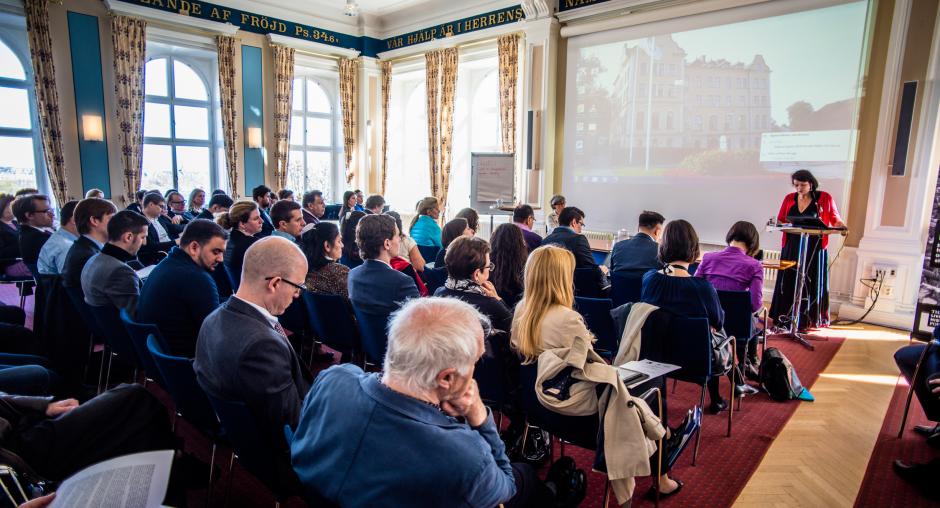Education about Roma and Sinti genocide is vital to countering discrimination today, say participants at OSCE/ODIHR seminar

Practices within the OSCE region for educating about the Roma and Sinti genocide were the focus at an event hosted jointly by the OSCE Office for Democratic Institutions and Human Rights (ODIHR), the Living History Forum and Swedish Equality Ombudsman on 23 April 2015 in Stockholm.
The session of the international seminar on “Educating about the Roma and Sinti genocide – Learning from the past to challenge present discrimination and promote equality” brought together more than 60 representatives of civil society and state authorities from across the OSCE region to discuss how teaching about, researching and recognizing the Roma and Sinti genocide can promote tolerance and non-discrimination in all segments of society. Participants focused, in particular, on the need for state service providers, including law enforcement officials and social service authorities in addressing discriminatory practices.
Representatives from ODIHR’s Contact Point for Roma and Sinti Issues also presented data gathered for a comprehensive report on the recognition and commemoration within the OSCE area of the Roma and Sinti genocide, to be published later this year and which will also highlight gaps in teaching and commemoration.
“Post-war societies widely ignored the sufferings of Roma and Sinti during the Holocaust, while discriminatory practices against them were continued,” said Mirjam Karoly, OSCE Senior Adviser on Roma and Sinti Issues. “We have to address how state authorities and public institutions deal with the past and promote reconciliation to bring justice to the victims and the following generations.”
Seminar participants also emphasized the importance of education about the genocide in formal and non-formal settings, to make society more sensitive about the circumstances that can lead to hate crimes, violence and genocide.
“It is necessary to understand the link between educating about the history of the Roma and Sinti and addressing their challenges today,” said Agneta Broberg, Equality Ombudsman of Sweden. “Increased historical consciousness, particularly among authorities and politicians, is a key to change.”
Ingrid Lomfors, Director of the Living History Forum, said: “There are frightening and clear signs of ugly attitudes towards Roma and Sinti in society. It is time to combat every kind of racism through education.”
